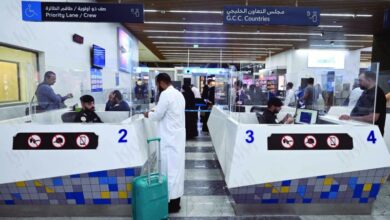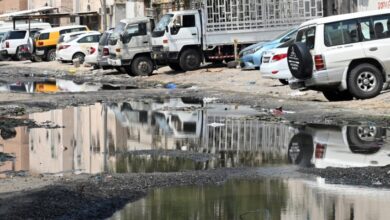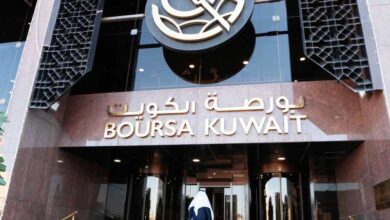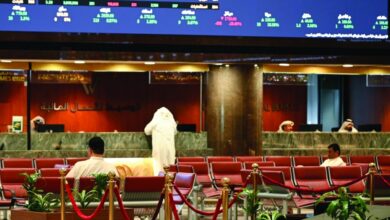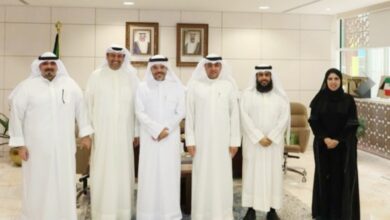
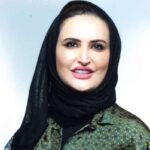
By Sheikha Suhaila Al-Sabah
Managing Editor
In a bold step that represents a pivotal shift in the course of education in Kuwait, the Kuwaiti Minister of Education announced the formation of specialised committees to change and develop curricula, within the framework of the comprehensive national plan of Kuwait. The committee will work to modernise the education system and keep pace with global developments, foremost of which is the technological revolution and artificial intelligence.
We hope that this step will not be just an amendment in the content of textbooks, but that the Kuwaiti educational identity will be reformulated, in line with the requirements of the global labor market, and meet the ambitions of new generations. With the explicit orientation towards integration of modern technology, especially artificial intelligence, in educational curricula. We also hope that the concepts of programming, data analysis, and computer languages will be introduced in the early stages of education, in addition to enhancing students’ creative and innovative skills.
This approach is a strategic step if it is carried out according to a well-thought out plan to prepare a generation that is competitive regionally and globally, and to create an educational environment that keeps pace with the digital transformations that the world is witnessing. One of our most prominent hopes for this modernization is to improve the quality of education output, by reducing the gap between what students learn in schools and what the labor market needs. The traditional approach, which relies on memorisation and indoctrination, has proven its inability to build competencies capable of innovation and decision-making. Education experts believe that curricula should improve critical thinking, teamwork, and problem-solving skills, which are key elements for building a modern knowledge economy in Kuwait.
Kuwait was not the first country to decide to make radical changes in its curricula. It was preceded by countries such as Finland, which today has one of the best education systems in the world, after focussing on developing curricula to be flexible, project-based, and support critical thinking and life skills.
Also in Singapore, the country has revolutionised education by updating its curriculum and linking it to technology, which has contributed to turning it into a global centre for innovation and the digital economy. In Canada, the province of Ontario has redesigned its curriculum to include 21st century skills, such as collaboration, creative thinking, and effective communication, and studies have shown that 82 percent of students have shown improvement in problem-solving skills after the introduction of the new curriculum.
In South Korea, the country has invested more than $2 billion in modernizing curricula and teacher training over the past decade, helping it lead global rankings in tests such as PISA. As for Estonia, it has transformed from a developing country to one of the most digitally advanced countries, thanks to linking curricula to digital transformation and the adoption of competence-based education, which led to its first place in Europe in educational performance according to the 2022 PISA report.
Despite the importance of this step, the challenges do not disappear from the scene. The success of change depends on training teachers, providing digital infrastructure, and preparing parents and students for this transformation. It also requires long-term vision and sustainable investment in education. But the opportunities that may result from this modernisation exceed the challenges. Kuwait today stands on the threshold of an educational revolution that may make a difference in its development and economic process, and consolidate its position in the ranks of scientifically advanced countries.
The decision of the Kuwaiti Minister of Education is not just internal reform, but a declaration of intentions towards an education built for the future. Education that takes into account the variables of the times and gives the people of Kuwait the tools of real knowledge. If countries are measured by their success in raising generations capable of creating, Kuwait is moving confidently towards a brighter tomorrow, driven by the will for change and the passion for progress. This step comes within the vision of ‘New Kuwait 2035’, which seeks to transform Kuwait into a regional financial and commercial centre. This will not be achieved without a flexible educational system, keeping pace with the rapid changes in the world. The development of curricula is not an end in itself, but a means of preparing national cadres capable of leading development and achieving scientific and technical efficiency internally.
We hope that the new curricula will also focus on national values and Kuwaiti cultural identity, to graduate generations that are proud of their homeland and at the same time have the tools of global competition. Rehabilitating and training teachers to be better able to use technological means and interact with modern teaching methods. Global experiences have proven that the teacher is the backbone of any successful educational system. In this context, expanded training programs must be launched locally and internationally, to qualify teachers to use smart learning technologies, such as augmented reality, e-learning, and educational data analysis, to ensure the effectiveness of the application of the new curricula. The student is no longer a passive recipient, but has become the centre of the educational process. Modern curricula rely on interactive education, as they encourage the student to research, discuss, and experiment, in order to develop his personality and enhance his intellectual independence.
We also hope that extracurricular activities will be promoted and linked to educational courses, to expand students’ awareness and provide them with 21st century skills, such as leadership, communication, and flexibility in thinking. Digitalisation will be the vital nerve of this plan. Thanks to the advanced digital infrastructure that Kuwait is promoting, interactive electronic content and smart educational platforms will be provided, allowing the student to learn according to his or her individual abilities, and follow their level moment by moment. This digitisation will contribute to reducing the gap between students and providing equal educational opportunities for all, including people with special needs and residents of remote areas.
In an era in which knowledge has become the real wealth, the step of changing curricula in Kuwait represents a smart investment in the minds of its children. The renaissance begins, from the classrooms and from the pages of books, it draws the features of the next homeland. If Kuwait succeeds in implementing this plan in the way it aspires to, it will undoubtedly become a role model in the region, and puts its foot firmly on the map of the leading countries in education and knowledge.











